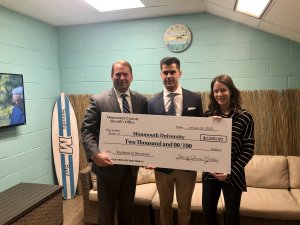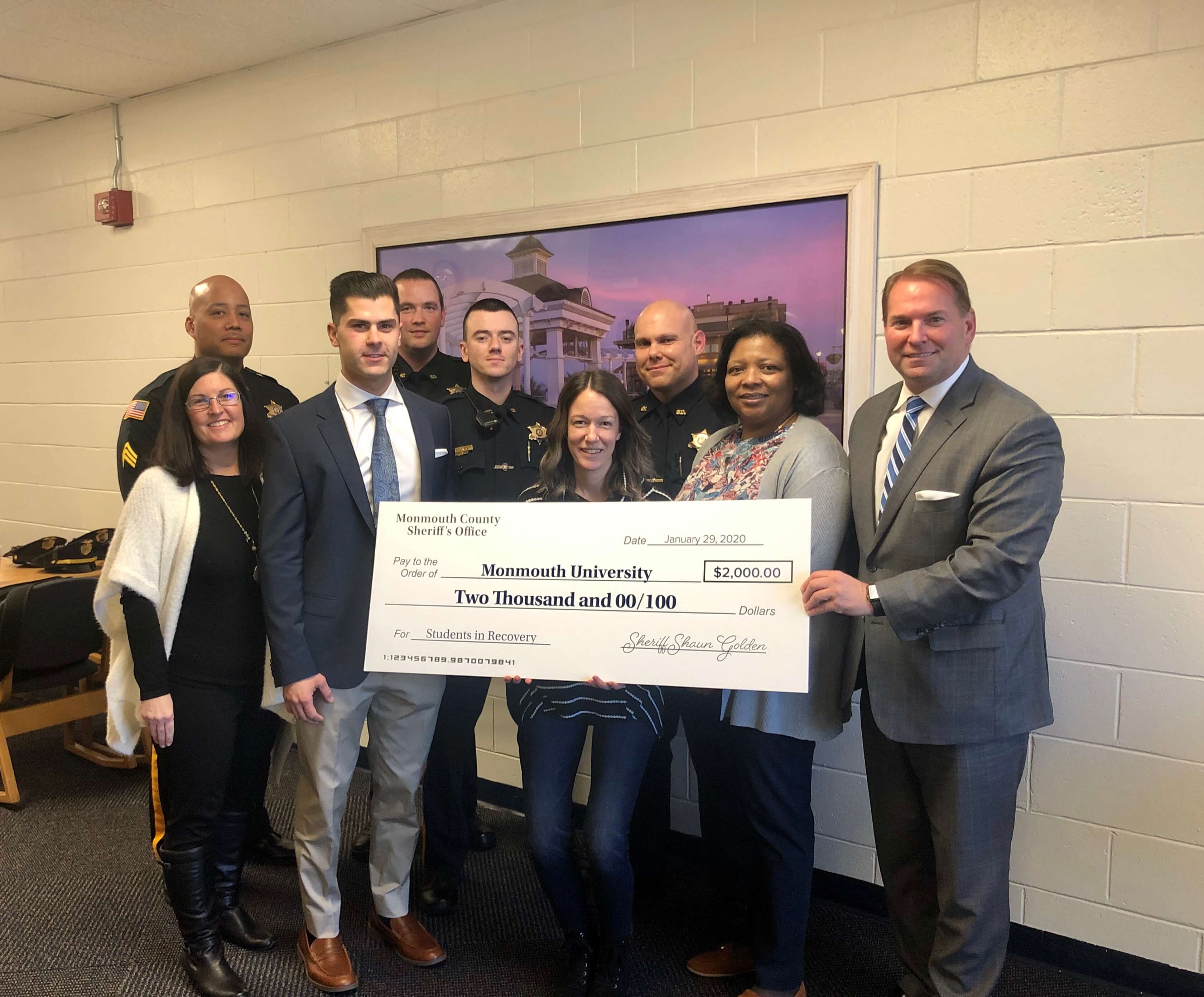
The Monmouth County Sheriff’s Office awarded a $2,000 donation to Monmouth University’s Students in Recovery Club at a small ceremony in the Student Center on Wednesday, Jan. 29 at 3 p.m.
Sheriff Shaun Golden was in attendance, as well as other officers, to award the university with funds to aid the club in its efforts to create a safe space for students who are battling or have battled addiction.
The Students in Recovery Lounge, where the ceremony occurred, is tucked away on the third floor of the Student Center and is a space where students can find solace and come together to talk, study, have coffee or tea, or relax.
The Students in Recovery Lounge was founded in 2017, and the student-run club was established in 2013.
“We’re just so appreciative of the Monmouth County Sheriff’s office for this generous financial contribution to support our students in recovery. We will use these funds to continue our efforts through programming and maintaining this lounge,” Suanne Schaad, coordinator and students in recovery advisor in the Office of Substance Awareness, said. “It’s a gift of hope and we thank you.”
 Funds will also be used to organize outings for students in recovery, Schaad said.
Funds will also be used to organize outings for students in recovery, Schaad said.
“It’s always our pleasure to do anything we can to help with anybody in recovery,” Selma Morris, executive assistant in the Monmouth County Sheriff’s Office, said.
The university and the Monmouth County Sheriff’s Office have collaborated on a number of initiatives over the years, such as raising money for the canine division and hosting forums on behavioral health and topics such as PTSD.
Sgt. John Esposito said, “Thank you for having us. Monmouth was great to us, and it was able to show that law enforcement can work with the community – and specifically those that are having issues in life, and we’re not just out there to arrest people. We can help people too.”
Golden, also a professor of criminal justice at Monmouth, noted, “Monmouth U. has been there for us. They raise money for our canines and they always find a way to give back somehow every year. It’s been a great team effort between the university and the Sheriff’s Office in the County of Monmouth. This is one of those things that the officers wanted to do and felt very passionate about it.” Golden added, “This is my 15th year at Monmouth University and I’m so proud of our students.”
One of those students is Matt Savage, a former student in Golden’s class who is now the vice president of the Students in Recovery Club. Back in 2012-2013, Savage had started his recovery, attending lunches and informal meetings before the Students in Recovery Club was officially formed. Savage, at the time, was unable to sustain his recovery and could not continue school.
“I’m able to come back now this semester and now there’s a whole group established for me to join. I thank you a lot for the money, but the principle behind it has so much more meaning to it because it encourages other people. To let them know there shouldn’t be as much of a stigma around recovery, and people that once were causing all these problems can now bring it full circle to become functioning members in society,” Savage said.
Golden pointed out how young students in recovery are not always part of the conversation regarding addiction, and how forming relationships with youth can help in recovery. “You’re a shining example of its success,” Golden replied.
Students in Recovery President Stephanie Surgent talked about how it can be difficult for undergraduates to admit they’re in recovery. Now in graduate school, she noted how coming back to school in your 30s can be difficult—especially for someone in recovery. But being a part of this group helped her feel like she had a place where she could belong.
“You don’t always want to be open about it because of the stigma, but when you come here, to a place where you feel like you can be yourself, you’re relaxed and in a safe place,” Surgent said.

